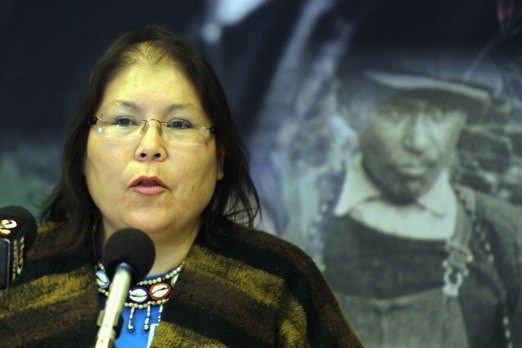As a child Marica Brown Martel didn’t think anyone in her family or community wanted her.
Taken from her home near Timmins when she was five, Brown Martell found herself with an adopted family in Texas. She was told that everyone in her family and neighbours were alcoholics and couldn’t take care of her.
“It was a lie,” Brown Martell, now chief of Beaverhouse First Nation said. “It’s a lie some people still believe.”
A year after being taken, all Martel wanted to do was go home. By eight, she was suicidal.
“I woke up crying every single day until my early 20s,” she said.
Martell went through life thinking that she was alone and that no one else shared her experience.
Even worse, she didn’t think anyone would believe her. But 10 years ago she launched a class action lawsuit against the Attorney General of Canada as one of an estimated 16,000 Ontario First Nations children taken between 1965 and 1985 in what’s been dubbed the ‘60s Scoop’.
Conditionally certified in 2010, that decision on the lawsuit was overturned by the Superior Court of Justice in 2011.
Now, on Monday, the case is up again, victims and survivors of the scoop still looking for certification, a first step in getting the federal and provincial government to acknowledge what Nishnawbe Aski Nation Deputy Grand Chief Goyse Kakegamic said was nothing short of cultural genocide.
“It is cultural genocide,” Kakegamic said. “To the federal government I say shame on you. To the provincial government I say shame on you.”
Kakegamic said he speculates government, which argues was only acting in the best interests of the children, don’t want to apologize or acknowledge the scoop because that would mean compensation similar to residential schools.
“That’s probably the bottom line,” he said.
While NAN and other First Nations organizations have passed resolutions supporting the lawsuit, he said it’s time to take political action to make the government recognize the scoop a priority.
If the certification isn’t successful, Kakegamic and Brown Martel said the process will start all over again.
“It’s important that Canada knows we will never go away. We will always fight,” Brown Martel said.
“And we will win.”
